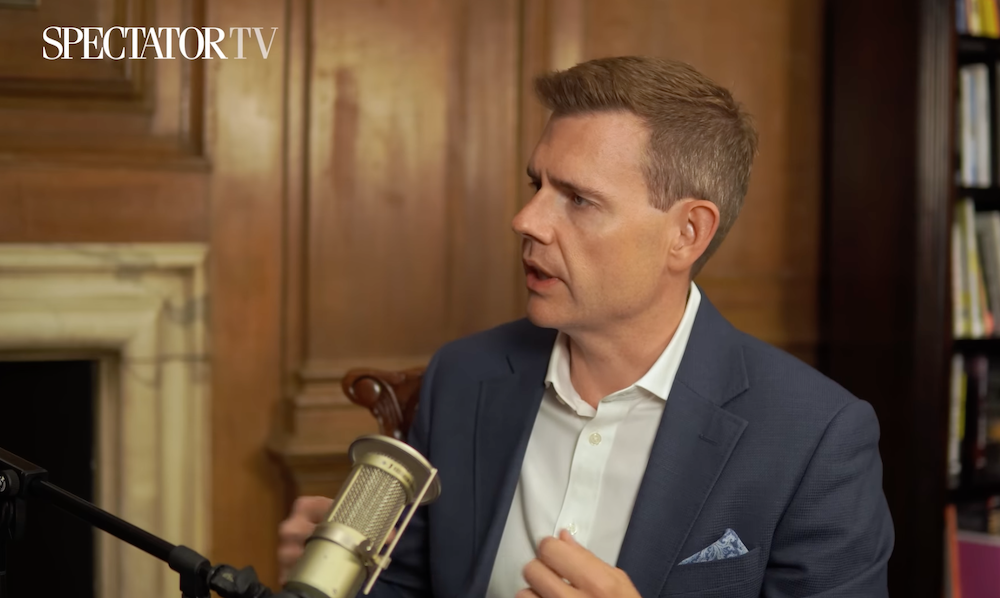Hungary, the country of my birth, takes a lot of flak these days – and with good reason. How nauseating that the nation which suffered Soviet oppression for nearly half a century – and whose 1956 Revolution was so savagely crushed by the Soviet army – now cosies up to a Russian president who reveres Stalin and bemoans the dissolution of the USSR. The maverick Hungarian prime minister, Viktor Orbán, once his country’s outspoken champion of freedom, is emphatically not on the side of Ukraine in its existential fight against Vladimir Putin’s invasion. Cheap Russian oil and gas are what interest him now…
But hard as I find it to stomach these present-day political machinations, I will always be immensely proud of my Hungarian origins – not least because this small central European nation (population ten million) with an obscure language has always punched above its weight. Back in the 1970s I read a snippet in a British newspaper which so impressed me that I cut it out and pasted it into my scrapbook of noteworthy quotes. It came from a Professor André Brousson, whose claim to distinction has been obscured by the passage of time. But I still have that scrapbook, and this is what the professor said: ‘One must acknowledge the talents of the Hungarians and note the ease with which they rise to the top in intellectually under-developed countries like Britain and the U.S.’ It made me smile then, and it still does – although now as a patriotic Brit.
But it’s undeniable: Hungary has produced a disproportionate number of world-renowned people in almost every field. Not for nothing do they say that when a Hungarian goes into a revolving door behind you, he comes out in front. Of course I must point out that many of these famous Hungarians have been Jewish – not the composers Liszt, Bartók and Lehár, nor that wizard footballer Ferenc Puskás, who led Hungary to a 6-3 victory over England at Wembley in 1953, and not Béla Lugosi, Hollywood’s first and most iconic Dracula.
But the majority, past and present, have been Jewish. They include Harry Houdini; Joseph Pulitzer; Sir Alexander Korda, instrumental in establishing the British film industry; Adolph Zukor, pioneering Hollywood movie mogul; writer Arthur Koestler; war photographer par excellence Robert Capa; playwright Ferenc Molnár; László Bíró, inventor of the ballpoint pen; Ernő Goldfinger, modernist architect of the Trellick Tower; Ernő Rubik (of the Cube); Sir Georg Solti; billionaire investor George Soros; film stars Tony Curtis and Leslie Howard; film director Michael Curtiz (Casablanca); and chess prodigy Judit Polgár, a grandmaster at the age of 15 and considered to be the greatest female chess player in history.
Of the 17 Hungarian Nobel Prize winners, about half are Jewish or of Jewish descent. Among them are the physicists Eugene Wigner and Dénes Gábor (the latter invented the hologram); authors Imre Kertész and (in 2025) László Krasznahorkai; and Elie Wiesel, winner of the 1986 Peace Prize (born to Hungarian parents in Transylvania, part of the Kingdom of Hungary until ceded to Romania in 1920). Not forgetting the American economist Milton Friedman, whose parents were Hungarian Jewish émigrés.
All this leads to the question: why have Hungarian Jews been so markedly successful and influential, as opposed to Jews from, say, the Balkans, the Baltic countries, or even Poland, which once boasted a far larger Jewish population? As for the plethora of big-name Jewish Germans and Austrians, they came from a much greater pool and benefited from a widely spoken mother tongue.
The expansive spirit of our golden age, 1867 to 1918, left its mark on the collective psyche of Hungarian Jewry
But the Hungarians? I believe their success stems from the cultural, social and political factors governing Hungary during the 19th and early 20th centuries. After the 1867 Compromise with Austria, the new Austro-Hungarian Empire became a vast multi-ethnic realm in which the sizeable Jewish population was finally free to flourish. Educational opportunities were open to them, with an excellent state school system featuring top-notch ‘gymnasiums’ – the equivalent of our grammar schools. Anti-Semitism was very minor compared with that which existed elsewhere, for example in Poland and Russia, and didn’t stop Jews from playing a prominent role in the country’s cultural life, in business, industry and the sciences – mostly centred on Budapest. So the Jewish population became better educated, more prosperous and more fully assimilated within the burgeoning middle classes, and in some cases entering the even wealthier landowning class.
It wasn’t until after the first world war and the defeat of the empire – when Jews became the only remaining ethnic minority in a truncated Hungary, thus making them an easy scapegoat – that anti-Semitism flared up in conjunction with the rise of the Nazis. And so in the 1920s and 1930s many talented, ambitious Jews set off for all points west. But I believe the expansive spirit of our golden age, 1867 to 1918, left its mark on the collective psyche of Hungarian Jewry and gave them the self-confidence and verve which enabled them to triumph – their impenetrable language notwithstanding.
Perhaps my favourite amongst the roll call of illustrious Hungarian Jews is that epitome of Hollywood glamour – the blonde, Budapest-born, nine-times-married Zsa Zsa Gábor. She died in 2016 aged 99. Famed for her witty one-liners, when asked how many husbands she’d had she responded with: ‘You mean other than my own?’ Priceless.








Comments